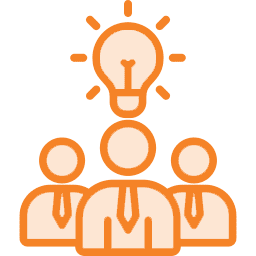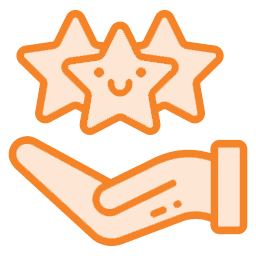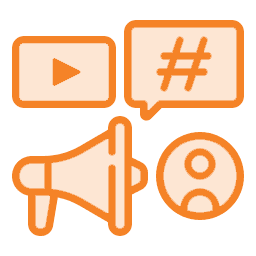B2B sales cycles are notoriously long. Deals can take weeks or even months to close due to complex decision-making, multiple stakeholders, and inefficient processes. However, AI is transforming the sales process, helping companies qualify leads faster, personalize outreach, and close deals sooner.
According to LinkedIn’s 2024 B2B Sales Report, AI-powered sales tools have:
✔ Reduced lead qualification time by 23%
✔ Increased conversion rates by 17%
✔ Accelerated deal closures by up to 5 days
This blog explores how AI is shortening B2B sales cycles, the key takeaways from LinkedIn’s study, and how businesses can start leveraging AI today.
Understanding the B2B Sales Cycle
A typical B2B sales funnel consists of five key stages:
- Lead Generation – Identifying potential customers through inbound or outbound marketing.
- Lead Qualification – Assessing whether prospects are a good fit.
- Lead Nurturing – Building relationships and keeping leads engaged.
- Sales Meetings & Demos – Presenting solutions and overcoming objections.
Negotiation & Closing – Finalizing the deal and onboarding the client.
Why Does B2B Sales Take So Long?
Multiple decision-makers delay approvals.
Low-quality leads waste time in the pipeline.
Lack of personalization results in lower response rates.
Unpredictable forecasting leads to ineffective prioritization.
AI is addressing these challenges by automating tasks, improving predictions, and optimizing outreach.
AI in B2B Sales: Defining the Role
AI in sales refers to machine learning and automation tools that help sales teams analyze data, predict customer behavior, and eliminate manual tasks.
Common AI Sales Tools & Technologies
- Chatbots & Conversational AI – Instantly qualify leads and answer FAQs.
- Predictive Analytics – Identifies high-potential leads based on behavior.
- CRM Automation – Suggests follow-ups and automates reminders.
- Lead Scoring Models – Ranks leads based on buying intent.
Popular AI-Powered Sales Tools
- LinkedIn Sales Navigator – Uses AI to recommend high-intent prospects.
- Salesforce AI (Einstein) – Predicts sales outcomes and automates workflows.
- HubSpot AI – Scores leads and personalizes email outreach.
- Gong.io – Analyzes sales calls to improve conversations and closing rates.
Key Insights from LinkedIn’s Study
LinkedIn’s 2024 AI in B2B Sales Report highlights three major ways AI is reducing sales cycle length:
23% Faster Lead Qualification – AI automates lead scoring, helping sales teams focus on the most valuable prospects.
17% Higher Conversion Rates – AI-driven personalization increases engagement and response rates.
Sales Cycles Reduced by 5 Days – AI automates follow-ups and prioritizes high-intent leads, accelerating deal closures.
Now, let’s break down exactly how AI is making this possible.

How AI is Shortening the Sales Cycle: Semantic Breakdown
1. AI for Lead Qualification and Scoring
What It Does: AI analyzes engagement data, industry signals, and buying intent to rank leads.
Example: HubSpot AI increased response rates by 40% by prioritizing leads most likely to engage.
2. AI-Powered Personalization and Outreach
What It Does: AI personalizes email sequences, LinkedIn messages, and chatbot interactions.
Example: Companies using AI-powered outreach saw 17% higher conversion rates due to hyper-personalized messaging.
3. CRM and Pipeline Automation
What It Does: AI automates follow-ups, meeting scheduling, and next-step recommendations.
Example: Salesforce AI (Einstein) reduced manual admin work by 30%, allowing sales reps to focus on closing deals.
4. Content and Conversation Intelligence
What It Does: AI analyzes sales call recordings, email responses, and customer conversations to identify key buying signals.
Example: Gong.io helped a SaaS provider increase deal closures by 27% by analyzing customer objections in real-time.
5. Sales Forecasting and Decision-Making
What It Does: AI predicts which deals are likely to close, helping sales teams focus on high-probability opportunities.
Example: Companies using AI-driven forecasting reduced deal loss rates by 15%.
Use Cases: Real Companies Leveraging AI
Case Study 1: Gong.io Increases Deal Closures by 27%
- Problem: Sales teams struggled to identify buyer intent in conversations.
- Solution: Gong.io analyzed 100,000+ sales calls to detect hidden buying signals.
- Results: 27% increase in deal closures after AI-optimized call strategies.
Case Study 2: HubSpot AI Increases Response Rates by 40%
- Problem: Sales reps sent generic email campaigns with low response rates.
- Solution: HubSpot AI personalized emails based on prospect behavior.
- Results: 40% higher engagement and shorter sales cycles.
Future Predictions: What AI Means for B2B Sales by 2026
Will AI fully automate B2B sales? No, but it will handle repetitive tasks, allowing salespeople to focus on high-value interactions.
Will AI replace salespeople? No, it will support them with real-time insights and recommendations.
What are the risks of AI in sales? Bias in lead scoring, privacy concerns, and over-automation need to be managed carefully.
How to Start Using AI in Your B2B Sales Process
Step 1: Identify time-consuming sales tasks (lead qualification, follow-ups).
Step 2: Choose AI-powered tools (LinkedIn Sales Navigator, HubSpot AI, Salesforce Einstein).
Step 3: Integrate AI into your CRM and track key performance metrics.
Step 4: Train your sales team to use AI-driven insights for smarter selling.
Conclusion
AI is not replacing sales teams—it’s making them more efficient. Companies leveraging AI-powered sales tools are closing deals faster, prioritizing high-intent leads, and improving engagement rates.
At Collab Lab, we help businesses integrate AI-driven sales automation, predictive analytics, and lead qualification tools to accelerate growth.
Get in touch today to see how AI can speed up your B2B sales cycle!





